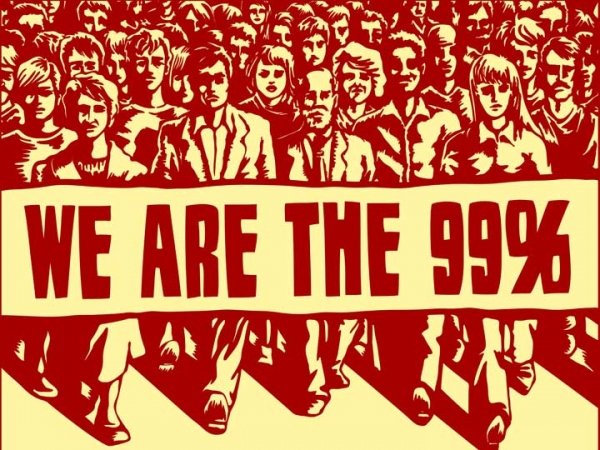
As a society grows, it evolves from a traditional to a more complex arrangement of socioeconomic patterns. Both Karl Marx and Emile Durkheim offer important insights, and come to different conclusions regarding how this change occurs within a society. For Marx, the basis of social change begins with the division labor and ownership of private property and one group's (the Bourgeoisie) control over the means of operation, private property, etc., while another, much larger group (the Proletariat) provides the labor and reaps none of the benefits. This struggle between the two groups (or classes) causes the working class to feel disenfranchised from their society and alienated from their community and also from the very work they provide (which is considered their private property). "No sooner is the exploitation of the laborer by the manufacturer, so far, at an end, that he receives his wages in cash, than he is set upon by the other portion of the bourgeoisie, the landlord, the shopkeeper, the pawnbroker, etc.," (Marx).
As the society continues down this path, the working class inevitably develops an awareness of this harsh economic inequality between themselves and the ruling class. The working class continues to grow, while the ruling class gets smaller. This class consciousness then turns into a revolutionary consciousness, which in turn leads to drastic social change in the form of a falling ruling class and rising working class. According to Marx, the basis of social change lies within the oppressed working class' realization of their position (the class struggle), and the inevitable social revolution that follows.
For Durkheim, the basis of social change begins with the increasing division of labor within a society. A society utilizes a mechanical solidarity in its beginnings. This means that its citizenry has a collective consciousness developed through the shared interests and feelings of likeness (or sameness) with each other. As the society grows in numbers and in technological advances, it changes from a mechanical solidarity to a more organic solidary, which coincides with the move from an agricultural/rural society to an industrial/urban society. With the emergence of industrialization, a diminishing need for a more traditional society, and as a result of the weakening of the collective consciousness, individualism increases and citizens inevitably become more dependent on each other.
This increase of individualism (caused by the division of labor) then becomes the root cause of social change in Durkheim's view, since it leads to the breakdown of family and community ties. Additionally, Durkheim also argues that crime enables social change by allowing room for social progress by highlighting what society views as "wrong" and giving an example of the punishments necessary for committing the crime. "Crime implies not only that the way remains open to necessary changes but that in certain cases it directly prepares these changes. Where crime exists, collective sentiments are sufficiently flexible to take on a new form, and crime sometimes helps to determine the form they will take," (Durkheim).
Hello @ayvemoonlight! This is a friendly reminder that you can download Partiko today and start earning Steem easier than ever before!
Partiko is a fast and beautiful mobile app for Steem. You can login using your Steem account, browse, post, comment and upvote easily on your phone!
You can even earn up to 3,000 Partiko Points per day, and easily convert them into Steem token!
Download Partiko now using the link below to receive 1000 Points as bonus right away!
https://partiko.app/referral/partiko
Congratulations @ayvemoonlight! You received a personal award!
You can view your badges on your Steem Board and compare to others on the Steem Ranking
Congratulations @ayvemoonlight! You received a personal award!
You can view your badges on your Steem Board and compare to others on the Steem Ranking
Do not miss the last post from @steemitboard: